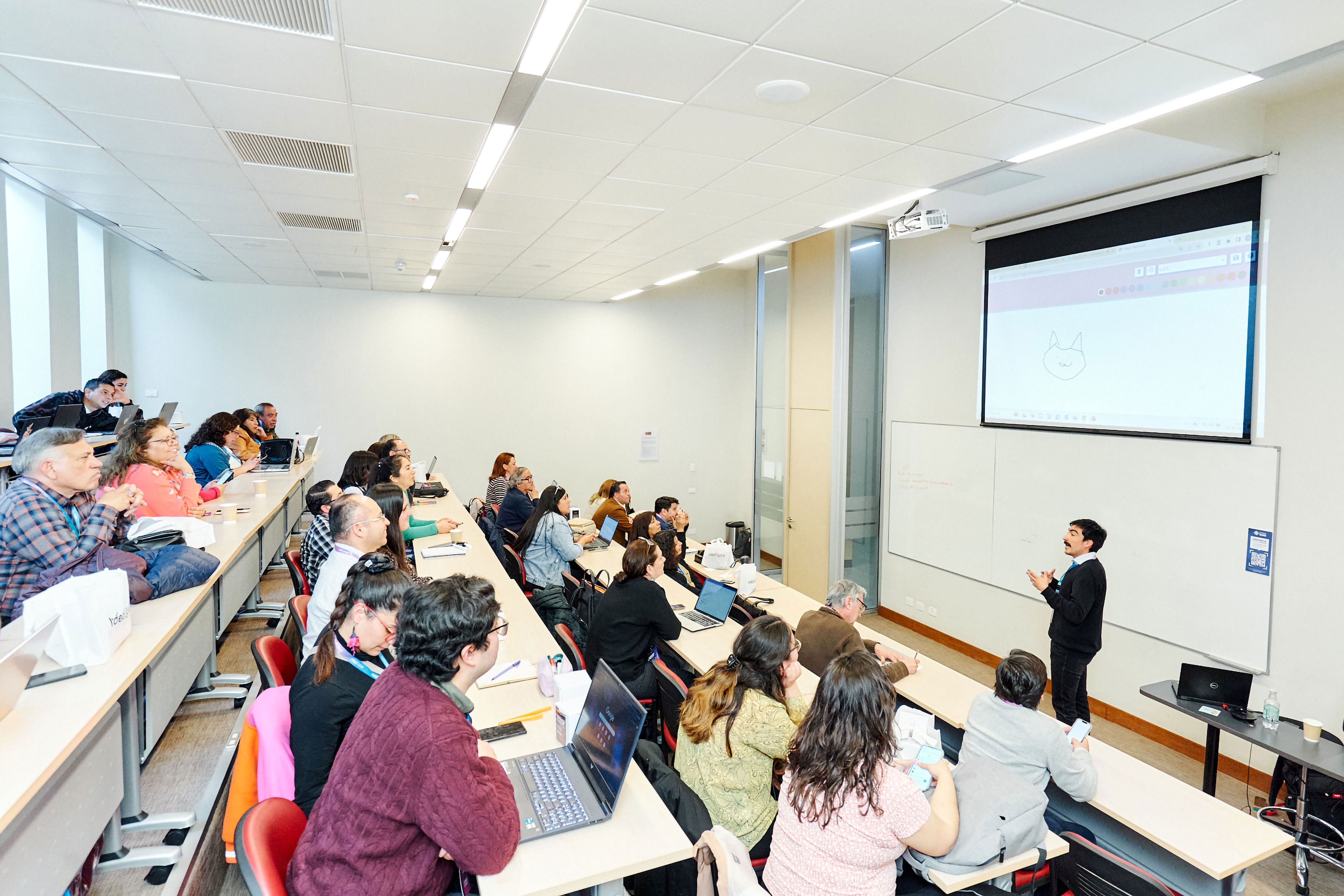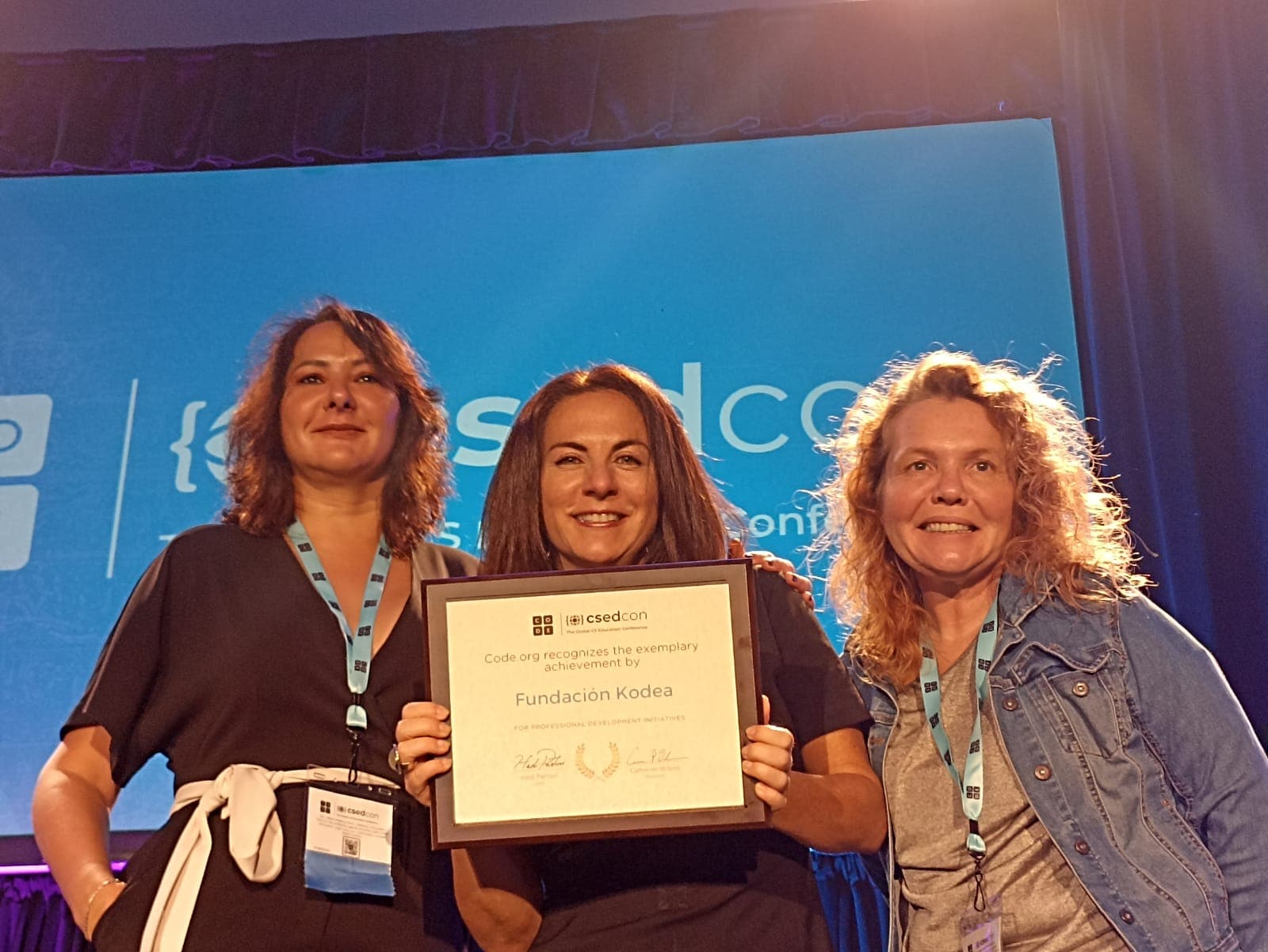19 August 2025
In Latin America, digital literacy policies have predominantly focused on making computers and digital information and communication technology more accessible.1 But to meet the demands of today’s digital transformation, digital literacy alone is no longer enough.
There has recently been a growing recognition of the need to shift technology training to help children and young people understand how technologies work and their underlying principles. The gap between digital consumption and aptitude is particularly apparent between students from the lowest and highest socioeconomic levels in Chile.2
Preparing underrepresented youth for the future economy is key in helping to build a strong, empowered community and a workforce that’s ready for what’s ahead.
Addressing the digital divide
The IdeoDigital project was launched in 2021 – through a strategic alliance between BHP Foundation and Fundación Kodea – to address the digital divide in Chile. BHP provides financial support to the BHP Foundation, a non-profit organisation that seeks to address the root causes of sustainability challenges relevant to the resources industry, including education.
The multi-year project has been working to help create the necessary conditions to integrate Computer Science into the national public education system; helping new generations of students grow from digital consumers to digital agents.
The IdeoDigital project looks at sustainable change through a systems lens – working across the education ecosystem to:
- provide training and content for teachers and schools
- advocate for greater awareness of the skills gap in public school systems
- seek to influence public policy to put digital literacy on the agenda and into school curriculums
“Our work with IdeoDigital also aims to raise awareness about the need to build digital citizenship and influence public policies that focus on strengthening 21st-century skills in students, as well as addressing the urgent need to incorporate these topics into training for teachers”, said Alejandra Garcés, BHP Foundation Country Director for Chile.

In response to the rapid growth in Artificial Intelligence (AI), IdeoDigital incorporated AI into its program and joined the creation of the first AI course for 600 pedagogy students in Chile across four universities in an initiative coordinated by the Ministry of Science, the Metropolitan University of Educational Sciences (UMCE), the National Center for Artificial Intelligence (CENIA), and Fundación Kodea.
From commitment to results
To date, IdeoDigital has developed, curated, translated and distributed content on technology subjects for students aged six to 18. This is carried out through a strong network of partnerships in the public education system, from the Ministry of Education to local entities.
The project has helped train more than 1,200 teachers in Computer Science in 14 of the 16 regions in Chile. Teachers are taking their learnings to the classroom, benefitting close to 38,000 students across the country, with more than 220 schools implementing IdeoDigital’s program.
Public and private collaboration is key to the project’s success. Through its collaboration with the Ministry of Education, IdeoDigital's content is available as a public resource for the educational community.

In recognition of this success, IdeoDigital has received accolades on the national and international stage for best practices in digital education.
Potential of an integrated solution
IdeoDigital's integrated model is proving to be an effective approach to help bridge the gaps in STEM knowledge and has potential to achieve greater impact for students in Chile.
The content produced by IdeoDigital in the areas of computational thinking and AI is being considered for inclusion in the update of Chile’s national school curriculum, anticipated for 2026.
In five years, the project’s success has the potential to offer more than just a positive contribution to Chile’s education system. It is a model that has the potential to be used to help prepare students for the future in other South American countries, with interest already shown from Peruvian schools.
Footnotes:
1. OCDE (2020), Making the Most of Technology for Learning and Training in Latin America, https://doi.org/10.1787/ce2b1a62-en. © 2020 OCDE, París.
2. Data from International Computer and Information Literacy Study (ICILS). Cited in IdeoDigital (2023), Habilidades Digitales en la Educación: Un Enfoque para el siglo XXI. https://ideodigital.cl/wp-content/uploads/2023/08/Dossier-2023-web-1.pdf

Get the latest BHP news alerts, straight to your inbox
Get BHP news first. Stay in touch with our latest updates, investor news and media releases.


